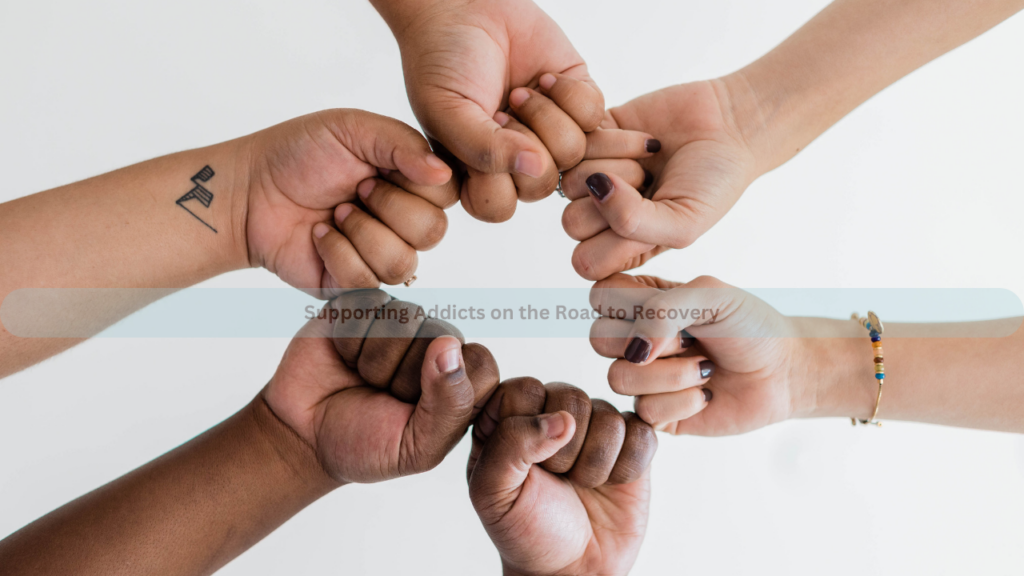
Addiction is a complex disease that affects not only the individual struggling with substance use but also their family, friends, and community. Supporting someone in recovery can be challenging yet profoundly impactful. Breaking the cycle of addiction requires a combination of empathy, understanding, and practical strategies that empower the individual to embrace a healthier lifestyle. Here are some effective approaches to support addicts on their road to recovery.
1. Educate Yourself About Addiction
Understanding addiction as a disease rather than a moral failing is crucial. Educating yourself about the nature of addiction, its effects on the brain, and the challenges faced during recovery can foster empathy and patience. Knowledge about the stages of addiction, withdrawal symptoms, and triggers can equip you to provide informed support and reduce feelings of frustration when setbacks occur.
2. Offer Emotional Support
Emotional support is a cornerstone of recovery. Be available to listen without judgment. Sometimes, individuals in recovery just need a safe space to express their fears, frustrations, and hopes. Validate their feelings and encourage open communication. Let them know you believe in their capacity to change, and celebrate small victories along the way. Your unwavering support can significantly boost their self-esteem and motivation.
3. Encourage Professional Help
While your support is invaluable, professional help is often necessary for effective recovery. Encourage your loved one to seek assistance from counselors, therapists, or support groups such as Alcoholics Anonymous (AA) or Narcotics Anonymous (NA). These professionals can provide specialized treatment, coping strategies, and a community of peers who understand their struggles. Offer to help them find resources or accompany them to meetings if they feel anxious about attending alone.
4. Set Boundaries
While it’s essential to be supportive, it’s equally important to set clear boundaries to protect your own well-being. This might mean avoiding enabling behaviors, such as providing financial support that could be used for substances. Communicate your boundaries lovingly but firmly, and be consistent in enforcing them. This approach encourages accountability and reinforces the idea that recovery is ultimately the responsibility of the individual.
5. Promote Healthy Habits
Encouraging a healthy lifestyle can play a significant role in recovery. Help your loved one engage in activities that promote physical and mental well-being, such as exercise, healthy eating, and mindfulness practices like meditation or yoga. These activities can reduce stress, improve mood, and enhance overall well-being. Participating in these activities together can strengthen your bond and create positive shared experiences.
6. Be Patient and Compassionate
Recovery is not a linear process; it often involves setbacks and relapses. It’s essential to practice patience and compassion during these times. Instead of expressing disappointment or frustration, offer encouragement and remind your loved one that setbacks are part of the journey. Help them refocus on their goals and remind them of the progress they have made. Your continued support can provide the stability they need to keep pushing forward.
Conclusion
Supporting an addict on the road to recovery is a multifaceted journey that requires dedication, empathy, and the application of effective strategies. By educating yourself, offering emotional support, encouraging professional help, setting boundaries, promoting healthy habits, and practicing patience, you can play a pivotal role in their recovery process. While the journey may be long and challenging, your support can make a significant difference in their life, helping them break free from the cycle of addiction and embrace a healthier, sober future.




 Addiction is one of the most pressing problems facing society today. It affects individuals of all ages, socio-economic backgrounds, and gender identities. It also affects families and communities across the nation. Sadly, too many people who are struggling with addiction are unable to access the quality resources that can help them to overcome their addiction and move forward with a healthier, more productive life.
Addiction is one of the most pressing problems facing society today. It affects individuals of all ages, socio-economic backgrounds, and gender identities. It also affects families and communities across the nation. Sadly, too many people who are struggling with addiction are unable to access the quality resources that can help them to overcome their addiction and move forward with a healthier, more productive life.
